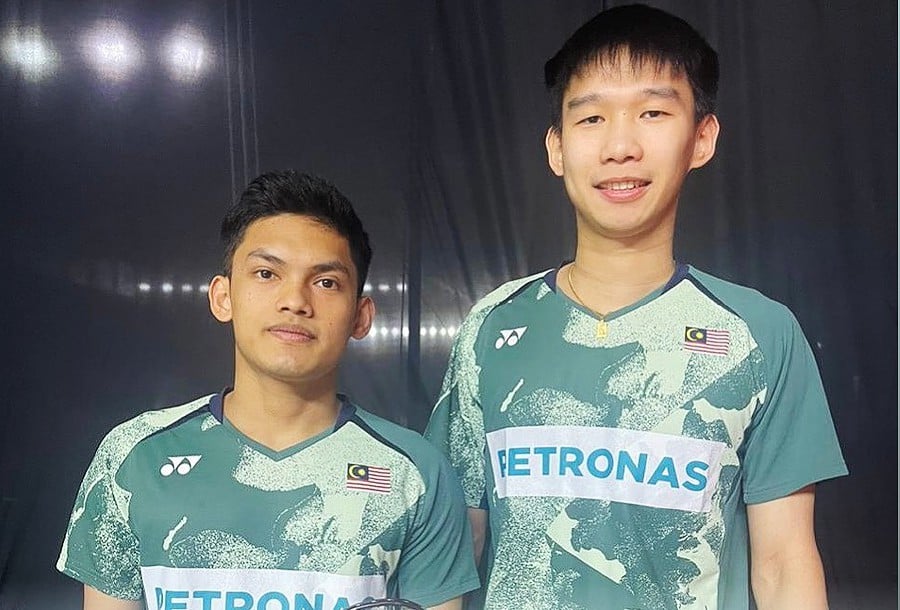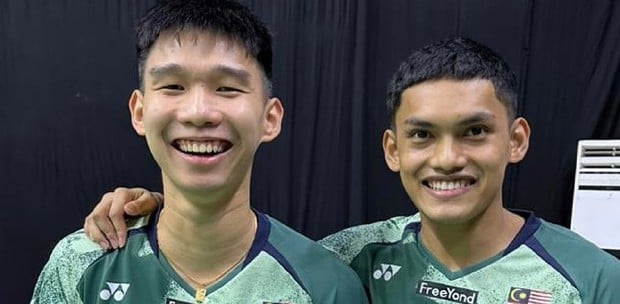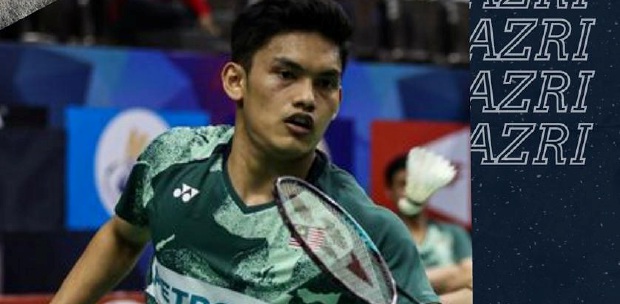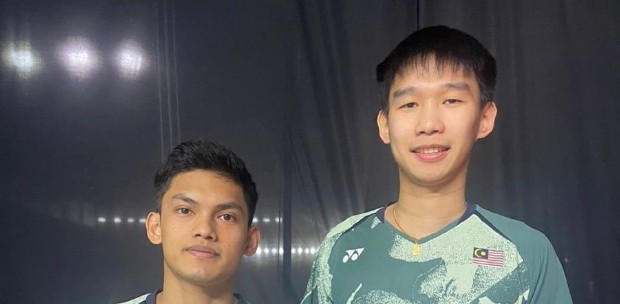KUALA LUMPUR: For the emerging national men's pair, Choong Hon Jian and Haikal Nazri, their exceptional achievement of clinching back-to-back titles was supposed to be widely celebrated, representing a rare occurrence in Malaysian badminton.
However, this triumph was overshadowed by their struggles to communicate effectively during the post-match interview on the court after their well-deserved win at the Guwahati Masters Super 100 last Sunday, becoming a prominent talking point.
The one-minute and 14-second video of the post-match interview circulated on social media, revealing the seemingly camera-shy Hon Jian pushing his partner Haikal to take the lead in speaking.
Caught off guard and initially reluctant, Haikal eventually responded to the TV host's questions.
To Haikal's credit, he spoke quite well, and his English proficiency was rather satisfactory. I had no doubt that all the audience at the arena, as well as those watching it remotely, had no problem understanding him.
Would the dynamics have been different if the interview were conducted in Bahasa? Undoubtedly, yes. However, it's crucial to acknowledge that English is an internationally important language.
As a Malaysian, I take pride in the fact that most of us can converse in English, even with basic proficiency.
Yet, from a journalist's standpoint, I must emphasise that Malaysian athletes often struggle to express themselves effectively, and this might not necessarily be solely attributed to their English language limitation.
Throughout my 16 years as a journalist, I've had the privilege of interviewing both local and international athletes. However, I consistently find the latter more engaging as they tend to provide more insightful responses, often allowing me to quote them verbatim.
In contrast, when dealing with local athletes, I often find myself grappling to put together a coherent sentence, frequently needing to rephrase their one-dimensional replies.
How often do we encounter quotes like "I'll try my best," "Just fight," "Nothing to lose"? These are common phrases uttered by many athletes, including seasoned campaigners.
It's our job to strive for a compelling story, something our editors will want to highlight. However, it doesn't help when we have to pad up our narrative.
A recent case that resonated with me is Danish star Anders Antonsen, who made Malaysia his temporary base to gear up for the World Tour Finals.
Antonsen was also highly knowledgeable, able to analyze his own performances from a technical point of view. I could easily break them down into two or three stories.
I don't believe any of our shuttlers will be able to provide similarly insightful interviews.
While the lack of decent communication skills by national sports people is often considered negligible, as long as their "actions speak louder than words," this can no longer be the case, especially if he or she is competing at the elite level in this era.
Athletes are the faces of teams and associations, and they are expected to fulfil sponsors' obligations.
It's even more imperative for professional athletes, as they need to endorse their sponsors' brands and, therefore, must possess good communication skills to maintain a positive individual image.
This may be related to our education system, which emphasises passive learning and memorization.
Fortunately, there are a few local athletes who can carry themselves well in public, like Datuk Azizulhasni Awang.
Perhaps it's time for the National Sports Council or the national sports associations to take the initiative and send athletes for courses to improve basic communication and self-confidence.
It's not just about performing; athletes serious about getting noticed on the big stage must also be able to market themselves.
This, in return, will help them secure sponsors for their sport and themselves.
Whether they are aware of this is anybody's guess.
Tan Ming Wai is a sports
contributor for NST





